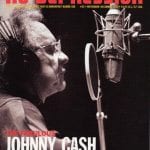Pops Farrar: 1930 to 2002
Two weeks before his father died, John Farrar, the eldest son of James Paul Farrar, asked the question every son one day will face. “What should we do, Pops?” His father had been diagnosed with cancer over a year ago; though he was known to be “terminal,” as he would say, his will made no mention of a funeral.
Captain Jim, as his friends sometimes called him, was born on Christmas Eve 1930 in Salem, Missouri. As a child he learned the old songs from his mother and father, who, like him, had grown up in the folk music melting pot of the Ozarks. Jim Farrar never studied music and could barely keep time; he learned to play his chosen instruments, the accordion and concertina, the same way he made his way through the world: by his wit, charm, and always open heart.
As a young man, Jim sought out fortune in the merchant marine; before he left the seas, he had set foot on every continent and gazed upon both poles. Along the way, he picked up more songs — German folk tunes and sea chanteys — and more stories, the raw stuff of his “memory music” as he called it. One night at port, he tried to perform for the other sailors, but his unkeeled rhythm and tortured melodies were met with derision. It wasn’t until the mid-1990s that he took to performing again.
Writer, musician, and itinerant dreamer Chris King befriended Pops (as he was known locally), and the two became inseparable friends. King documented Farrar’s story on an exhaustive website (www.hoobellatoo.org) and produced Pops’ first recording, Memory Music (Skuntry.com Records). That album remains a fascinating portrait of one of the last American songsters and is valuable listening for anyone interested in the roots of roots music.
Those who knew Pops remember his pipe smoke, his bawdy jokes, his labyrinthine stories, his insatiable curiosity about American history, and his voice. He sang with a minstrel’s flair and a rounder’s hard luck pathos. He believed no one could accompany his sui generis musicality — Pops’ music was strange but always musical — but at his CD release party, three of his four sons, all musicians, took the stage with him for the first time. And in his final years, he often performed with his grandson, busking at the Soulard Market in St. Louis.
A pine box and a 21-gun salute were his last wishes. On August 12, 2002, James Paul Farrar was buried at Jefferson Barracks military cemetery in St. Louis. Shots were fired; a bugler played taps. Farrar is survived by his wife Darlene, his 7 grandchildren, and his four sons, John, Wade, Dade and Jay. His music and stories remain in our memories.




